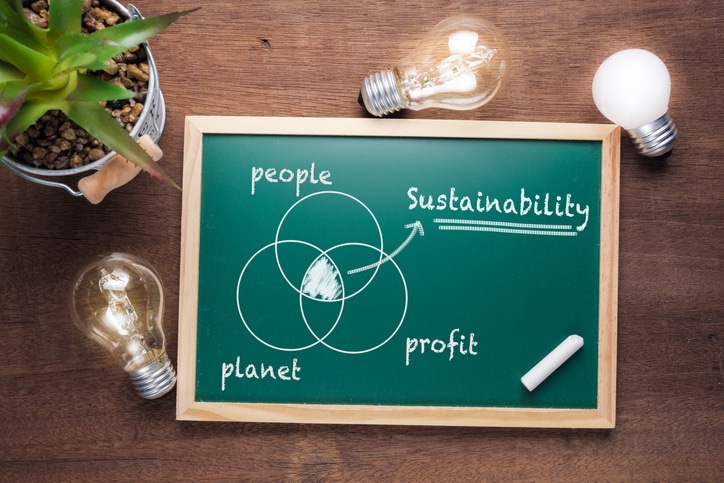Consumers around the world are feeling the effects of climate change, from rising temperatures to more volatile weather phenomena.
With the growing awareness that the things they frequently bought and discarded in the past contributed to the present problem, many now want to change their buying habits for the sake of the planet.
It isn’t a job for just one person, though; the issue goes beyond personal environmental advocacies.
Consumers are clamoring to businesses to recognize the need for environmentalism and pull their weight in preserving the natural world for future generations, too.
Many go as far as only supporting brands and businesses that adhere to sustainability best practices or actively explore eco-friendly alternatives for their products, supplies, and methodologies.
Studies Show Consumers Favor Sustainable Businesses
It is no longer presumptuous to say that businesses stand to benefit a lot from adopting sustainable practices. Studies provide evidence supporting this.
Nielsen’s 52-week study, “How and Why Sustainability is Gaining Momentum with Customers,” revealed that consumer goods with sustainability claims outperform their non-sustainable counterparts by very wide margins.

Nielsen studied how sustainability factors affected the dollar sales of chocolate, coffee, and bath product brands. The results were clear: the sales growth of the products with sustainability claims was more than twice the average growth of all three categories combined.
It didn’t matter that a category had relatively small market shares; the response of the consumers was the same.
The Center for Sustainable Business (CSB) at the New York University Stern School of Business recently released a study on consumer purchasing habits. Entitled, “Sustainable Share Index: Research on IRI Purchasing Data,” the study revealed the trend in the purchase of sustainable products from 2013 to 2018.
Stern analyzed the sales growth of over 71,000 SKUs in 36 CPGs (consumer packaged goods). The findings revealed that products marketed as sustainable were the best performers and the drivers of growth in their respective categories. They were also responsible for 50 percent of the CPG growth during the study period. Sustainable products yielded $113.9 billion in 2018, up by 29 percent from $88.2 billion in 2013.
Concerns over food waste compel people to care about how businesses prepare the food they sell.
A look back at an earlier survey by Unilever reveals that the movement towards sustainable food preparation started as early as 2011.
Unilever surveyed 4,000 diners from Brazil, China, Germany, Poland, Russia, Turkey, the US, and the UK on their attitudes about sustainability practices in the foodservice industry. The results revealed that 72 percent of diners care about how restaurants and food establishments handle their food.
Additionally, 47 percent of the customers are willing to pay more for meals at restaurants that are doing an excellent job of reducing their food waste.
Now, you may not be a restaurant but if you produce food products that are sold in restaurants or directly to consumers, it is more and more important that you adjust your practices to be more sustainable.
How Can Your Business Find its Place in this New Narrative?
From the examples above, we can say that environmental advocacy is important, but how do they impact a company?
Positive branding
Today’s consumers no longer view environmental advocacy as a marketing strategy but as a responsibility. Many expect it of the businesses they support. Those who fall short of expectations might eventually lose the support of their customers and will have trouble acquiring new ones in the future.
Brand loyalty
It makes people have peace of mind knowing that the choices they make are having a positive impact. Businesses that offer this opportunity are likely to earn people’s patronage. Millennials and Gen Z-ers, in particular, are more likely to develop loyalty to brands that show concern for the environment.
Competitive edge
The combination of green branding and strong customer loyalty gives a significant advantage over competitors. In a time when entrepreneurship is flourishing, and the market is overrun with a dozen versions of one product, every advantage earned is essential.
Improved revenue streams and lower production costs

Sustainability promotes simple production processes that reduce an enterprise’s ecological footprint. Instead of adding to the demand for plastic packaging, for example, a business can choose the more affordable recycled paper bags.
Another example is selling unwanted by-products such as bulk used cooking oils from food production to create another stream of revenue for your business. Click here to learn how to make money off of your unwanted cooking oil.
Less production and manufacturing waste – Similar to the above, production lines that use sustainable materials only consume what’s necessary. Enterprises that are serious about observing the best practices will find ways to utilize excess materials, if any.
Association with wellness and good health – Eco-friendly products, by principle, do not harm the environment, whether they are in their raw or finished form or even when disposed of. It’s an appealing quality to consumers, especially those who have health issues like sensitive skin and severe allergies.
Tax benefits
Many US states grant tax deductions and credits to environmentally compliant businesses. Those who implement green measures in their operations (e.g., installing green technologies like solar panels, fuel cells, and geothermal energy systems) also get tax benefits.
Longevity
A significant uptick in sales is never a guarantee, but brands that practice sustainability in every aspect of their business have a good shot at improved longevity. It’s because they can keep their overhead costs lower, optimize resources, capitalize on tax perks, and capture the attention and patronage of a growing demographic (i.e., environment-conscious consumers).
Consumer behavior drives market growth. With the current climate leaning in favor of those who are taking responsibility for their environmental footprint, businesses that make sustainability a priority and integral to their operations will reap a lot of benefits today and even more in the future.
Setting an Example: Brands that Succeeded in Pursuing Sustainable Practices
Enterprises that are skeptical about the merits of being eco-friendly should take a look at some famous brands that are now known for their pro-environment philosophies and business practices.
While some were already big and successful from the get-go, others gained notoriety and success because of their commitment to helping preserve the world’s resources.
These brands are excellent examples of how sustainability brings commercial benefits. Small businesses and corporations can take their cues from these eco-friendly brands:
TOMS – Despite the congestion of footwear brands in the market today, TOMS was able to stand out thanks to its mission of providing one pair of shoes to less fortunate children for every pair of TOMS shoes purchased. Founder and “Chief Shoe Giver of TOMS” Blake Mycoskie may have been driven by philanthropy, but his advocacy also promoted sustainability.
Many of its shoe collections are made from natural hemp, organic cotton, and recycled polyester. The company also uses packaging that is 80% made from recycled materials.
Additionally, the company’s CSR programs focus on creating positive environmental and social impact all over the world.
Birkenstock – Another famous shoe brand that’s changing the industry, Birkenstock is a recipient of many accolades from environmental and vegan groups because of their commitment to environmental protection.
The company made its production process sustainable, a feat that very few brands can boast. From the type of materials used for making Birkenstock shoes to their choice of packaging and logistics method, Birkenstock chooses sustainable options.
The company uses natural cork, jute, natural latex, and solvent-free adhesives for their shoes.
Lush – This soap brand, which evokes thoughts of “sustainability” and “eco-friendliness,” is an example of a green branding success story.
Lush Cosmetics produces all-natural soaps, shampoos, and other bath and body care products, including fragrances. It markets its products as “handmade cosmetics,” which boosts their image as a sustainable business operation that promotes ethical buying (with no chemicals or power-hungry equipment involved in their manufacturing process, the company maintains a low carbon footprint).
Lush also famously uses recycled paper as packaging and up-cycled crates and wood for its in-store displays. As a result of all these efforts, Lush established itself as a hip, eco-friendly brand that walks the sustainability talk.
It can be difficult to change operations to accommodate viable alternatives if the less eco-friendly system has long been in place. But if businesses consider the long-term effects of being a green brand versus playing it safe and stagnating despite the environmental movement, it’ll be plain to see that taking the green route could be more beneficial to their bottom line.
These examples are from tech and lifestyle industries, where options are the name of the game, however. Can it be done in industries that are a basic need for people like the mass food processing and production sector? The answer is, “Yes.”
Ways to Demonstrate Environmental Advocacy in the Foodservice Industry
Achieving sustainability is extra challenging for food manufacturing. The typical fare these businesses create involves the use of meats, poultry, and produce. True, it is possible to specialize in “sustainable food choices,” but let’s be real: it’s not always the best idea, especially for entrepreneurs who are targeting a wide demographic instead of very niche markets.
Suppose a plant creates heat-and-serve frozen meals and wants to market itself into an eco-friendly business without changing their product very much. What can they do to earn recognition as being more sustainable?
Recycle cooking oil – Recycling, not reusing, is a good start toward sustainability for companies that specialize in food.
Used cooking oil (also known as yellow grease) should be disposed of properly so it doesn’t clog pipes and sewer systems. The hardened fat that accumulates within the tubes can cause sewer overflows and backups, which in turn puts the public’s health at risk.
The best way to recycle bulk used vegetable oil is to collect them in an approved vessel. Food production companies can then sell the bulk yellow grease to a registered collector and buyer like GF Commodities.
Selling used cooking oil offers double benefits: plants can dispose of their used oils in an eco-friendly manner and, as we stated earlier, earn something extra on the side.
Convert used cooking oil into fuel – This isn’t something your company has to worry about doing but is more an extension of the point above.
Biofuel is a renewable resource and effectively addresses concerns about the improper disposal of used cooking oil. It provides a sustainable solution for recycling UCOs.
Observe proper waste disposal – Policing trash segregation inside the premises is a good start to becoming a more sustainable business. It would take some time to make employees and patrons participate in an establishment’s efforts to promote green practices, but it’s doable.
There are definitely more sustainable practice options available to food-related businesses and other enterprises and there is no doubt that doing so would help improve the bottom line, but the true meaning of these efforts should stay at the forefront.
Sustainability in business can only last if the enterprise is fully committed to preserving the environment.
If you manage a food processing or manufacturing plant and are interested in recycling your bulk used cooking oil to kick off your efforts to become more sustainable, we can help. GF Commodities is a registered collector and buyer of used cooking oil with service areas all over the country and we will pay you for your unwanted product!
Call Dan Kozubek at 816-812-8685 for more information or fill out our contact form and we will be in touch soon!



